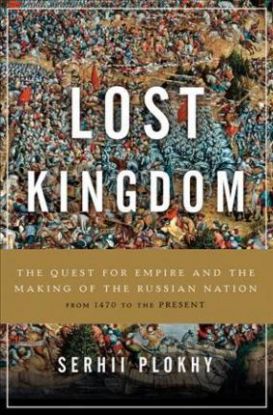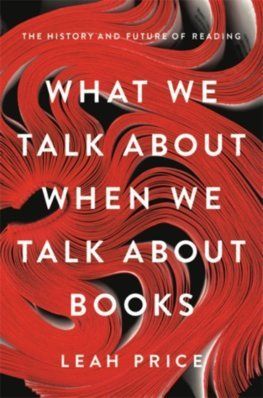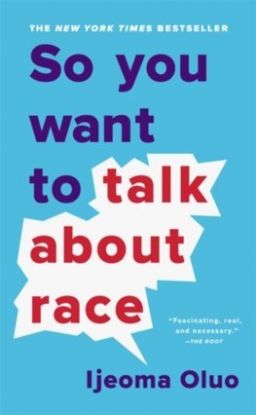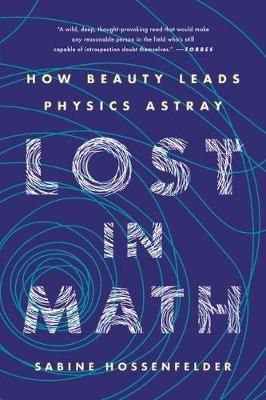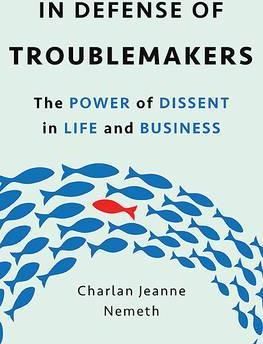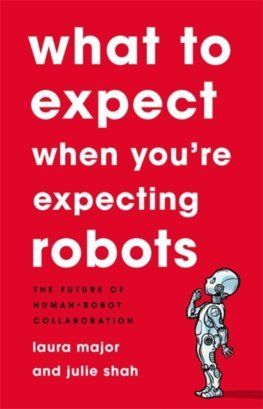BasicBooks
vydavateľstvo
Lost Kingdom
From a preeminent scholar of Eastern Europe, a new history of Russian imperialism
In 2014, Russia annexed the Crimea and attempted to seize a portion of Ukraine. While the world watched in outrage, this blatant violation of national sovereignty was only the latest iteration of a centuries-long effort to expand Russian boundaries and create a pan-Russian nation.
In Lost Kingdom, award-winning historian Serhii Plokhy argues that we can only understand the confluence of Russian imperialism and nationalism today by delving into the nation's history. Spanning over 500 years, from the end of the Mongol rule to the present day, Plokhy shows how leaders from Ivan the Terrible to Joseph Stalin to Vladimir Putin exploited existing forms of identity, warfare, and territorial expansion to achieve imperial supremacy.
An authoritative and masterful account of Russian nationalism, Lost Kingdom chronicles the story behind Russia's belligerent empire-building quest.
Vypredané
29,93 €
31,50 €
War in 140 Characters: How Social Media Is Reshaping Conflict in the Twenty-First Century
A leading foreign correspondent looks at how social media has transformed the modern battlefield, and how wars are fought
Modern warfare is a war of narratives, where bullets are fired both physically and virtually. Whether you are a president or a terrorist, if you don't understand how to deploy the power of social media effectively you may win the odd battle but you will lose a twenty-first century war. Here, journalist David Patrikarakos draws on unprecedented access to key players to provide a new narrative for modern warfare. He travels thousands of miles across continents to meet a de-radicalized female member of ISIS recruited via Skype, a liberal Russian in Siberia who takes a job manufacturing "Ukrainian" news, and many others to explore the way social media has transformed the way we fight, win, and consume wars-and what this means for the world going forward.
Vypredané
27,50 €
28,95 €
The Virtue of Nationalism
In the wake of Brexit and the election of Donald Trump, countless words have been written and uttered about nationalism-many accusing nationalists of racism, hatred, and violence. But nationalism wasn't always considered evil. Indeed, such venerated figures as John Stuart Mill, Churchill, Eisenhower, and Ben-Gurion considered themselves nationalists. Were the men and women of that era misguided in their emphasis on self-determination for all peoples?
In The Virtue of Nationalism, the philosopher Yoram Hazony offers an incisively original case for national sovereignty in an era when it is under attack from many sides. He recounts how in the 17th and 18th centuries, English, Dutch, and American Protestants revived the Old Testament's love of national independence, and how their nationalism freed the world from the vision of universal empire promoted by German-Catholic Holy Roman Emperors. Their vision became the basis of opposition to imperialists of later eras, and eventually brought freedom to peoples from Poland to India, and from Israel to Ethiopia.
But since the 1960s, the tide has turned against national independence. "Globalists" say that self-determination brought us two World Wars and the Holocaust. The answer they offer us-global governance-is well-intentioned. Yet it has reawakened hatreds, stoking chaos and revolt across the world.
Hazony argues that we will be forced to choose between a world of independent states, or a renewal of universal empire-in the form of the European Union or American hegemony. The Virtue of Nationalism makes clear that anyone who values their freedoms should fight for a world of nations.
Vypredané
30,88 €
32,50 €
The Model Thinker
Data, data, data: It's all one ever hears about these days. Science is all about big data. Our bosses call out for analytics, whatever those might be.
And everyone wants to predict what will happen next. Can we accurately predict if a company's stock will rise, whether or not a disease will spread, or who will become the next President of the United States? As anyone who has ever opened up a spreadsheet groaning with weeks, months, or years of data knows, numbers aren't enough: we have to know how to make them talk. Enter Scott Page and The Model Thinker.
A leading professor of quantitative social science at the University of Michigan, he has taken his expertise as both a teacher and researcher and distilled it into the one book anyone will need to master data and turn it to professional use. This is no armchair exercise in imagined understanding, like The Signal and the Noise or The Black Swan or a legion of books on networks, the purposes of which are to make us look good in meetings (or in our own minds) than they are to enable us to do something useful. The Model Thinker is the guide to turning data into understanding.
Underneath it all is what Page calls the "many-model paradigm", where the key isn't to just find one related set of statistical tools and work with them over and over, but to test our understanding of things by modeling them from several perspectives. The result is both a deep, quantitative acquaintance with tools ranging from Markov chains to game theory to Taleb-style long-tail statistics to network analysis and complexity theory, and a profound trip through the thought-process of a world-class data modeler. All the major tools of modeling--which readers will have heard of in everything from Wired to The Economist to The New York Times--will finally yield their secrets.
As The Theoretical Minimum showed, readers in quantitative fields aren't just looking for entertainment. They want to change their understanding of, and ability to act, in the real world. Businesspeople, students, and scientists alike will find much to learn from The Model Thinker.
Vypredané
30,35 €
31,95 €
What We Talk About When We Talk About Books
Around 2000, people began to believe that books were on verge of extinction. Their obsolescence, in turn, was expected to doom the habits of mind that longform print had once prompted: the capacity to follow a demanding idea from start to finish, to look beyond the day's news, or even just to be alone. The "death of the book" is an anxiety that has spawned a thousand jeremiads about the dumbing down of American culture, the ever-shorter attention spans of our children, the collapse of civilized discourse.
All of these anxieties rely on the idea of a golden age, when children and adults alike sat quietly for long stretches reading edifying literature that improved our minds and souls. A booklover by temperament as much as profession, literature professor Leah Price wanted to believe that. But as a historian of the book, searching out the traces of long-dead readers through their marginalia and their unbroken spines, she began to wonder if our current digital discontents were stirring up nostalgia for a past that had never existed.
When you look at old books, what do you find? A few well-greased pagespreads limply scattered among hundreds that remained spotlessly crisp; essays stained with beer from reading aloud at the pub; novels crumpled from being hidden in a pocket. From the eighteenth-century dawn of mass literacy to the Cold-War-era triumph of the paperback, few books were read cover-to-cover, meditatively, in silence. We have been shocked - shocked!--by data from Kindle that shows that most readers start books but rarely finish them, or skip large sections in between.
But it has always been so. And in fact, for much of history, "deep" reading was strongly discouraged. Doctors and clergymen warned that print could addict, distract, or corrupt--not the ideas it contained, but the very experience of running one's eyes over a page.
Over the centuries, children and women especially were repeatedly warned not to spend too much time reading, lest it excite their minds and distract them from other, more edifying tasks. Impatient with untempered book worship, Price emphasizes the continuities between past and present reading practices, and dispels the myth of the Golden Age of Print on multiple fronts. An anti-nostalgic examination of the past, present and future of reading, What We Talk About When We Talk About Books will fascinate bibliophiles and readers of all stripes.
Vypredané
26,60 €
28,00 €
Uncommon Grounds: The History of Coffee and How It Transformed Our World
First published in 1999, Uncommon Grounds tells the story of coffee from its discovery on a hill in ancient Abyssinia to the advent of Starbucks and the coffee crisis of the 21st century. Mark Pendergrast uses coffee production, trade, and consumption as a window through which to view broad historical themes: the clash and blending of cultures, slavery, the rise of brand marketing, global inequities, fair trade, revolutions, health scares, environmental issues, and the rediscovery of quality.
As the scope of coffee culture continues to expand,Uncommon Grounds remains more than ever a brilliantly entertaining guide to one of the world's favorite drinks.
Vypredané
23,74 €
24,99 €
Never Home Alone
In Never Home Alone, biologist Rob Dunn takes us to the edge of biology's latest frontier: our own homes. Every house is a wilderness -- from the Egyptian meal moths in our kitchen cupboards and the yeast in a sourdough starter, to the camel crickets living in the basement, to the thousands of species of insects, bacteria, fungi, and plants live literally under our noses. Our reaction, too often, is to sterilise.
As we do, we unwittingly cultivate an entirely new playground for evolution. Unfortunately, this means that we have created a range of new parasites, from antibiotic-resistant microbes to nearly impossible to kill cockroaches, to threaten ourselves with and destroyed helpful housemates. If we're not careful, the "healthier" we try to make our homes, the more likely we'll be putting our own health at risk.
A rich natural history and a thrilling scientific investigation, Never Home Alone shows us that if are to truly thrive in our homes, we must learn to welcome the unknown guests that have been there the whole time.
So You Want to Talk About Race
In So You Want to Talk About Race, editor-at-large of The Establishment Ijeoma Oluo offers a contemporary, accessible take on the racial landscape in America, addressing head-on such issues as privilege, police brutality, intersectionality, micro-aggressions, the Black Lives Matter movement, and the "N" word. Perfectly positioned to bridge the gap between people of color and white Americans struggling with race complexities, Oluo answers the questions readers don't dare ask, and explains the concepts that continue to elude everyday Americans. Oluo is an exceptional writer with a rare ability to be straightforward, funny, and effective in her coverage of sensitive, hyper-charged issues in America.Her messages are passionate but finely tuned and crystalize ideas that would otherwise be vague by empowering them with aha-moment clarity. Her writing brings to mind voices like Ta-Nehisi Coates, Roxane Gay, Jessica Valenti in Full Frontal Feminism, and a young Gloria Naylor, particularly in Naylor's seminal essay "The Meaning of a Word."
Lost in Math - How Beauty Leads Physics Astray
In this "provocative" book (New York Times), a contrarian physicist argues that her field's modern obsession with beauty has given us wonderful math but bad science.
Whether pondering black holes or predicting discoveries at CERN, physicists believe the best theories are beautiful, natural, and elegant, and this standard separates popular theories from disposable ones. This is why, Sabine Hossenfelder argues, we have not seen a major breakthrough in the foundations of physics for more than four decades.
The belief in beauty has become so dogmatic that it now conflicts with scientific objectivity: observation has been unable to confirm mindboggling theories, like supersymmetry or grand unification, invented by physicists based on aesthetic criteria. Worse, these "too good to not be true" theories are actually untestable and they have left the field in a cul-de-sac. To escape, physicists must rethink their methods. Only by embracing reality as it is can science discover the truth.
Vypredané
17,05 €
17,95 €
In Defense of Troublemakers
An eminent psychologist explains why dissent should be cherished, not feared
We've decided by consensus that consensus is good. In In Defense of Troublemakers, psychologist Charlan Nemeth argues that this principle is completely wrong: left unchallenged, the majority opinion is often biased, unoriginal, or false. It leads planes and markets to crash, causes juries to convict innocent people, and can quite literally make people think blue is green. In the name of comity, we embrace stupidity. We can make better decisions by embracing dissent. Dissent forces us to question the status quo, consider more information, and engage in creative decision-making.
From Twelve Angry Men to Edward Snowden, lone objectors who make people question their assumptions bring groups far closer to truth--regardless of whether they are right or wrong. Essential reading for anyone who works in groups, In Defense of Troublemakers will radically change the way you think, listen, and make decisions.
Vypredané
25,65 €
27,00 €
Mortal Republic
In Mortal Republic, prize-winning historian Edward J. Watts offers a new history of the fall of the Roman Republic that explains why Rome exchanged freedom for autocracy. For centuries, even as Rome grew into the Mediterranean's premier military and political power, its governing institutions, parliamentary rules, and political customs successfully fostered negotiation and compromise.
By the 130s BC, however, Rome's leaders increasingly used these same tools to cynically pursue individual gain and obstruct their opponents. As the center decayed and dysfunction grew, arguments between politicians gave way to political violence in the streets. The stage was set for destructive civil wars--and ultimately the imperial reign of Augustus.
The death of Rome's Republic was not inevitable. In Mortal Republic, Watts shows it died because it was allowed to, from thousands of small wounds inflicted by Romans who assumed that it would last forever.
What To Expect When Youre Expecting Robots
For however smart your Roomba or Alexa might seem, historically, robots have been fairly dumb. They are only able to do their jobs when given a narrow set of tasks, confined in a controlled environment, and overseen by a human operator. But things are changing. A new breed of robots is in development that will operate largely on their own. They'll drive on roads and sidewalks, ferry deliveries within buildings, stock shelves in stores, and coordinate teams of doctors and nurses. These autonomous systems will find their way into busy, often unpredictable public spaces. They could be truly collaborative, augmenting human work by attending to the parts of tasks we don't do as well, without our having to stop and direct them.
But consider, for a moment, the sorcerer's apprentice. The broom he set to work was also supposed to be collaborative, too, and should have made his life much easier. But the broom didn't know how to behave, and the apprentice no longer understood the thing he had made.
The challenge of this next generation of robots is that, like the apprentice's broom, they will wreak complete havoc, inadvertently hurting or even killing people, unless we can recognize a simple truth: collaborative robots will be the first truly social creatures that technology has created. They will need to know how to behave in unfamiliar spaces and around untrained users and bystanders.
Robot experts Julie Shah and Laura Major are among those engineers leading the development of collaborative robots, and in this book, they will offer their vision for how to make it in the new era of human-robot collaboration. They set out the blueprint for what they call working robots, which in many ways resemble service animals, and take readers through the many fascinating and surprising challenges that both engineers and the public will need to address in figuring out these machines can be responsibly integrated into society: what they will have to look like, how they will have to talk to strangers and what robot etiquette will be, whether we will have to "robot-proof" public spaces and infrastructure, and how the safety-critical work of human-robot collaboration will force a sea change in how the tech industry is regulated.
Today, we still gawk at a car that drives by without a driver. Tomorrow, you might find yourself driving next to five of them. We can debate whether the singularity will ever come, but robots need not be superintelligent in order to revolutionize our relationship to technology. Read this book to find out how.
False Alarm
With hurricanes battering coast lines, sea level rise threatening entire countries with extinction and wildfires raging across broad swaths of America and the planet, it is hardly surprising that countering global warming has become a top priority for the developing world. In ten years, we have gone from arguing about whether climate change is real to wagering on how soon it will actually extinguish planet Earth. David Wallace-Wells' book The Uninhabitable Earth tops bestseller lists and Greta Thunberg is an international hero.
Children panic about their future, and adults wonder if it is even ethical to bring new life into the world. Enough, argues political scientist and bestselling author Bjorn Lomborg. Climate change, while real, is not the apocalyptic threat that we've been told it is.
There is no scientific evidence, for instance, that the world is suffering from more droughts, wildfires, or hurricanes than ever before. In fact, global death due the natural disaster is at an all-time low. The real problem is that with increasing affluence, more people are moving to riskier parts of the world - coastlines, areas with high wildfire risk - and building more expensive property there.
So the costs of natural disasters are rising, even though their incidence isn't - contributing to the impression that the world has become a far more dangerous place. Climate panic is based on bad science, and generates even worse policy. Around the world, we are currently spending about $500 billion annually on environmental issues and, with the many promises of zero carbon emissions soon, those costs could escalate to $10-20 trillion annually.
But these policies are not paying dividends in terms of solving global warming. The Paris Agreement, for instance, is the most expensive treaty in the history of the world -- and a terrible investment in the human future, destined to return only eleven cents on the dollar. Worse still, the money that goes to fund environmental initiatives crowds out other measures that could have a far more dramatic impact on human well-being, particularly in the developing world: by focusing on issues like immunization, education, birth control, and nutrition, we could increase GDP at a vastly higher rate than climate change threatens to lower it.
Measured and data-driven, False Alarm will convince you that almost everything you think about climate change is wrong -- and points the way towards making the world a vastly better, if slightly warmer, world for all.
False Alarm
The New York Times-bestselling "skeptical environmentalist" argues that panic over climate change is causing more harm than good
Hurricanes batter our coasts. Wildfires rage across the American West. Glaciers collapse in the Artic. Politicians, activists, and the media espouse a common message: climate change is destroying the planet, and we must take drastic action immediately to stop it. Children panic about their future, and adults wonder if it is even ethical to bring new life into the world.
Enough, argues bestselling author Bjorn Lomborg. Climate change is real, but it's not the apocalyptic threat that we've been told it is. Projections of Earth's imminent demise are based on bad science and even worse economics. In panic, world leaders have committed to wildly expensive but largely ineffective policies that hamper growth and crowd out more pressing investments in human capital, from immunization to education.
False Alarm will convince you that everything you think about climate change is wrong -- and points the way toward making the world a vastly better, if slightly warmer, place for us all.
A New World Begins
The principles of the French Revolution remain the only possible basis for a just society -- even if, after more than two hundred years, they are more contested than ever before. In A New World Begins, Jeremy D. Popkin offers a riveting account of the revolution that puts the reader in the thick of the debates and the violence that led to the overthrow of the monarchy and the establishment of a new society. We meet Mirabeau, Robespierre, and Danton, in all of their brilliance and vengefulness; we witness the failed escape and execution of Louis XVI; we see women demanding equal rights and black slaves wresting freedom from revolutionaries who hesitated to act on their own principles; and we follow the rise of Napoleon out of the ashes of the Reign of Terror.
Based on decades of scholarship, A New World Begins is the definitive treatment of the French Revolution.
Vypredané
22,75 €
23,95 €
Life is Simple
Life is Simple tells the remarkable story of how a thirteenth century monk's search for simplicity led to the emergence of the modern world.
We begin in the turbulent times of the medieval friar, William of Occam, who first articulated the principle that the best answer to any problem is the simplest. This theory, known as Occam's razor, cut through the thickets of medieval metaphysics to clear a path for modern science. We follow the razor in the hands of the giants of science, from Copernicus, to Kepler, Galileo, Newton, Darwin, Einstein, Rubin and Higgs. Its success suggests that we live in the simplest possible habitable universe and supports the revolutionary theory that our cosmos has evolved.
By highlighting the very human passion, curiosity, mistakes and struggles of those who were inspired by Occam's razor to create the modern world, Johnjoe McFadden provides new insight into what science is really about. And that the principle of simplicity is as relevant today as ever.
Vypredané
19,48 €
20,50 €
